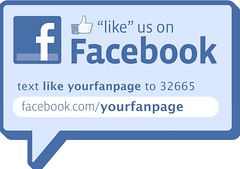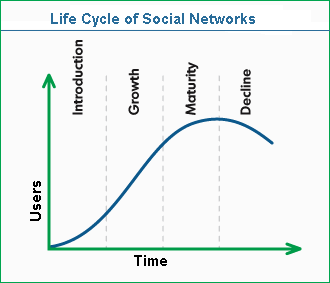This is a guest post by Amanda DiSilvestro.
Sometimes when I think of Facebook, I can’t help but think addiction. Coffee and cigarettes I can quit, but for some reason Facebook has a hold on me, and after doing some research, I have found that I am not the only one. According to a Nielsen study, in 2010 the amount of time the average person spends on Facebook was about 14 minutes per day, or seven hours per month. Even more astonishing, if you combine the amount of time spent on Google, Yahoo, YouTube, Wikipedia, and Amazon, Facebook still comes out on top. In other words, having a Facebook page for your small business is a great way to advertise. Even better, individuals (known as Facebook fans) can “like” or add your company as a “friend”; therefore staying notified of any special deals or messages you send out. But after spending 14 minutes per day on Facebook, you probably already knew that.
The problem with the Facebook “likes” is there is really no way to track whether or not they matter. After all, there are a lot of alternative reasons someone may “like” your company:
- They were in contact with you once, so they say “why not?”
- Their friends like your company, so maybe they will too
- They think someday they may use your company, but quickly forget about you
- They want to accumulate as many likes as possible
- They want a free, one-time coupon or some Farmville dollars
Granted, even these reasons are better than nothing. Facebook is free, so using it cannot hurt. However, this article is not about whether or not you should have a Facebook page. This is an article that answers the question: Should I get excited when I see that my company has a lot of fans on Facebook?
Facebook Fan Research
 There have been numerous studies conducted to try and crack the case of the Facebook fan, yet all seem to yield different results. Below are the two most mentioned and most respected studies that I have found:
There have been numerous studies conducted to try and crack the case of the Facebook fan, yet all seem to yield different results. Below are the two most mentioned and most respected studies that I have found:
Vitrue’s Findings
The most respected number that researchers have come up with comes from the social media marketing platform company Vitrue. In an AdWeek article, Vitrue shares findings that a fan base of 1 million translates into at least $3.6 million in equivalent media per year. In other words, each individual fan is worth $3.60 per year. The company’s findings were based on impressions (the equivalent of one ad view) generated in the Facebook news feed, and this data was collected from about 41 million fan pages. Here is how it worked:
- If a company page has 1 million fans and the company posts two messages on their page daily, then that means 60 million (2 x 30 x 1 million=60 million) impressions will be made each month.
- The cost of 1000 impressions is $5 (according to Vitrue) so the cost of 60 million impressions is $300,000 (60 million x 5/1000=300,000).
- Per year, this calculated the number $3.6 million (300,000 x 12=3.6 million).
Overall, this study is respected by many because it worked with such a large pool of data. This prompted many other companies to conduct their own studies in different ways. Probably the second most well-known study was completed by Sycapse.
Sycapse’s Findings
Social media management company Sycapse’s report was completed in the summer of 2010. Although this study was not quite as large or involved as the one discussed above, it does offer another way of looking at a fan’s value. They surveyed data from more than 4,000 fans of top brands, such as Starbucks and McDonald’s, and then asked how often they purchased from the company. Although the study was based exclusively on B2C type companies, their facts can still help small businesses decide the worth of a fan. With that in mind, some of their findings included:
- Fans spend approximately an additional $71.84 on products for which they are fans as opposed to those who are not
- Fans were 28% more likely to use the product over someone who is not a fan
- Fans are 41% more likely to recommend a product they are a fan of as opposed to a product they are not
In total, Sycapse found that one Facebook fan generates about $136 per year in revenue. Not bad for a page that takes about twenty minutes to create.
The Truth about Facebook Fans and Why These Studies Are Under Attack
After all of my research, I would have to say that the Vitrue study discussed above is about the best gauge we have when it comes to Facebook fans (and is most respected amongst the small business crowd). However, the study seems to generalize each fan as opposed to really digging deep into the differences that occur, and then subsequently generating a new number for each type of fan. I therefore cannot help but mention some of the assumptions of which the study bases its opinions:
- The value depends on the company—Your common sense will tell you that the value of a fan for a popular brand will be very different than the value for a smaller company. If a company produces big-consideration items, they are certainly more likely to have a Facebook fan that yields big number. If your company produces items that people do not use quite as often, they will not yield the highest numbers (and will be less likely to become a fan in the first place).
- Not every fan is the same—A fan who truthfully “likes” your product or service is far more likely to be of value than someone who just wants a coupon for a one time use. It is nearly impossible to decide which fans are real and which fans are one-timers (especially when you have 1 million of them!), so lumping them all together when doing research is not nearly as accurate as it should be.
- The value may not be new—People are still unsure whether or not Facebook fans spend more once they become fans, or become fans simply because they spend more. If people spend more once they become fans, then they are certainly bringing in revenue. However, if those spenders have always been spenders (and becoming a fan was last on their list), then all Facebook is doing is reflecting an already existing value.
The same can be said about the Syncapse study. They worked with large, popular companies, so it makes sense that a larger number would be generated per each Facebook fan. While this is all good and well, it does not really help the smaller businesses.
I have to say, after looking into the many studies that have been conducted I (along with many others) have concluded that at this point, it is nearly impossible to truly determine the value of a Facebook fan. Your individual company can certainly get close if you use a similar strategy as the Vitrue study, but there are too many unknowns about the types of people who consider themselves “fans.”
In the end, getting excited about a Facebook fan is not a crime. At the very least, you are getting exposure from something that is completely free. If you make a higher profit because of Facebook, even if you don’t know it’s directly from your Facebook efforts, then that’s still great. In other words, consider spending time on your Facebook company page as a good use of time, not part of an addiction. 🙂
Amanda DiSilvestro is a writer on topics ranging from social media to voip phone service. She writes for an online resource that gives advice on topics including voip business phone systems to small businesses and entrepreneurs at Business.com.






i was just having this convo last night with someone over skype. I see the mad hype over fb fans yet how many of those fans translate into actual dollars all depends on the type of business your actual page is doing. thanks for the post. i liked it.
Amanda,
Agreed with you that value of true Facebook fan depends on your industry plus how engaged your fans are. Fewer engaged fans can be valued lot more than an ordinary fan.
Thanks for sharing
I think the conversation regarding Facebook fans will always be an interesting one. I think someday there will be a way to really make that Facebook fan count, but until then we have a lot of variables : ( Nonetheless, Facebook is absolutely worth it for businesses even if they only get one customers out of it!
thanks for the article…..it really explains a lot about facebook fans nature…
Absolutely. I feel as though this is somewhat bad news just because Facebook fans can seem so exciting, but like I said before, it can’t hurt.
the value of a fans network is an important consideration as well – certainly not all fans are created equal in terms of their propensity to engage as well as their own network engagement levels (who engages with them). So engagement is one important measure but so is reach and how a FB page is management to achieve a strong network on both of those fronts will certainly affect the value of each fan. We gathered some really interesting stats on this matter when we looked at the fan activity for 16 brands to understand how each post type is engaged with and how if ultimately reaches a broader FB audience. Some of the findings were pretty straightforward – like photos get the most engagement generally, but not always the most reach. Of course this begins to give us some insight into how edgerank works. you can get the full details here, I’d love to get your thoughts on it: http://www.webliquidgroup.com/research-facebook-reach-analysis
Hi Matt,
I just downloaded your study and it is very interesting! It’s very clear and I think your results do make sense. I like the last chart that describes the “interaction rate” and “correlation to impressions.” It certainly does make sense that images and videos get the most action, but I think it’s interesting that videos have a higher “correlation to impressions” than images (even though they have a lower interaction rate). I think this really shows the power of video! Thanks so much for sharing those great stats!